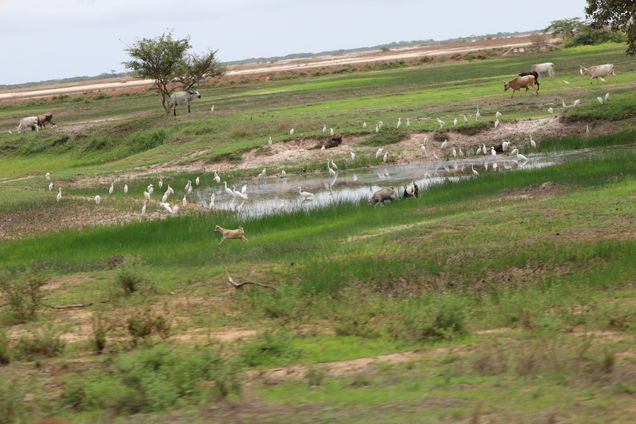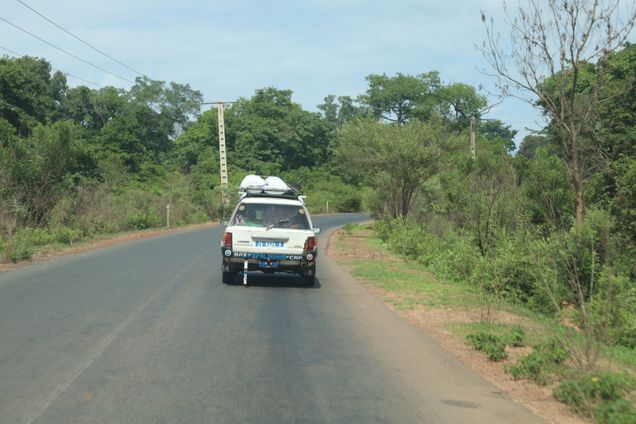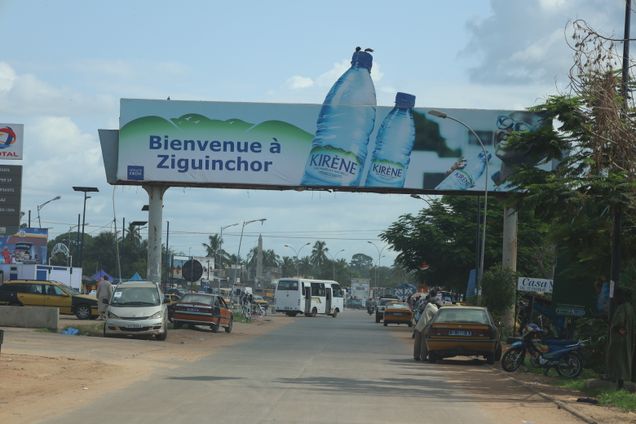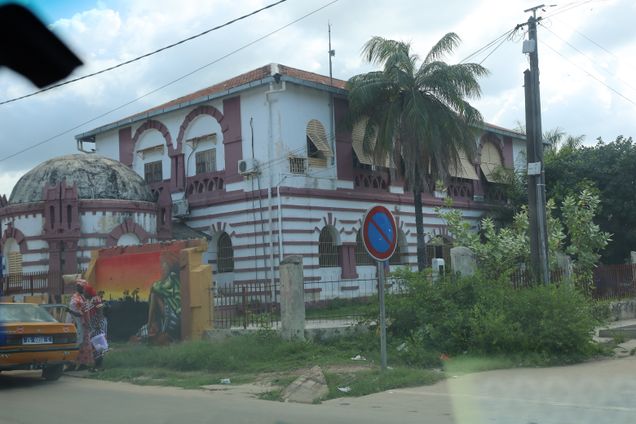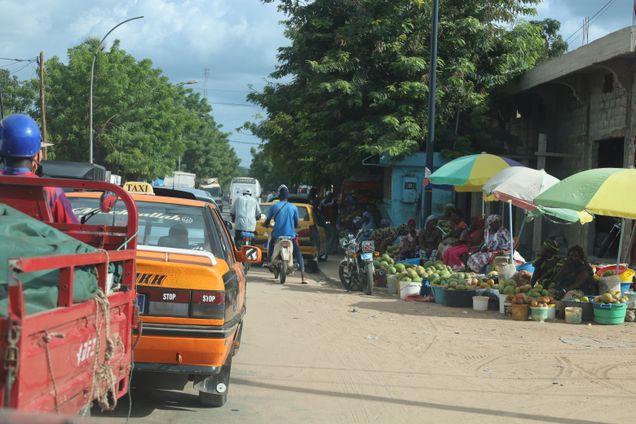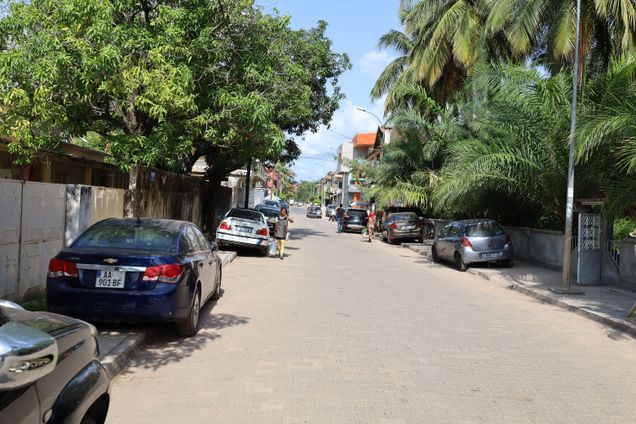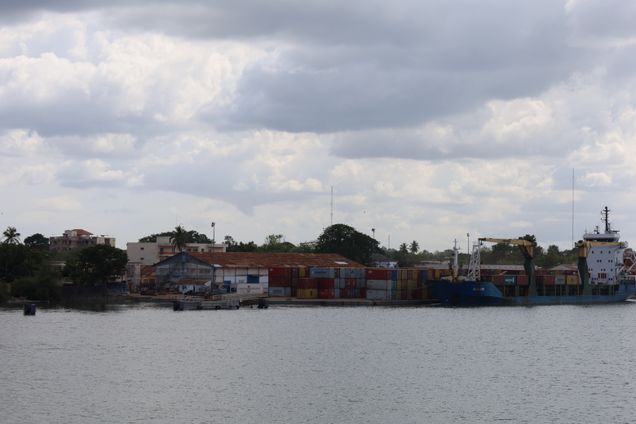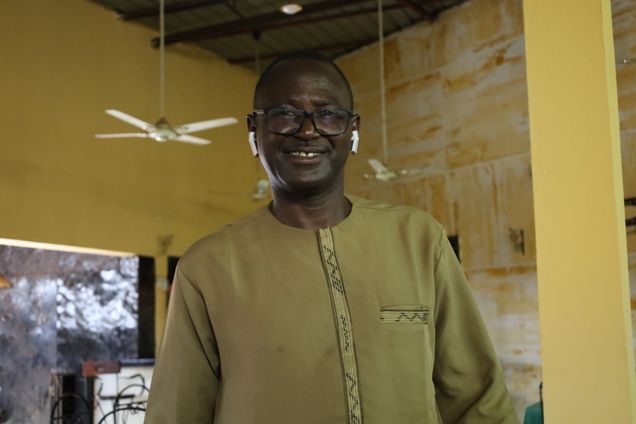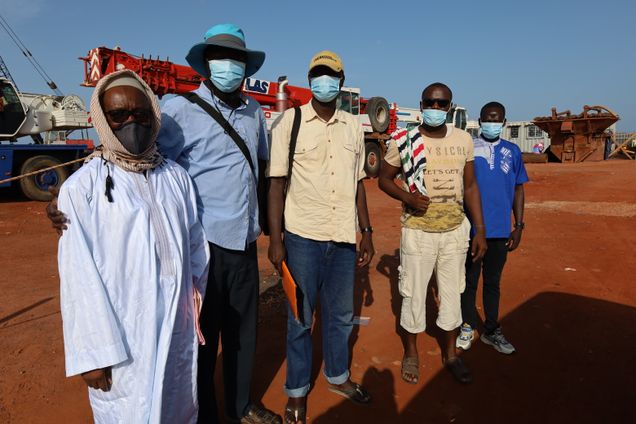Unit 3: Wandifa Dramé
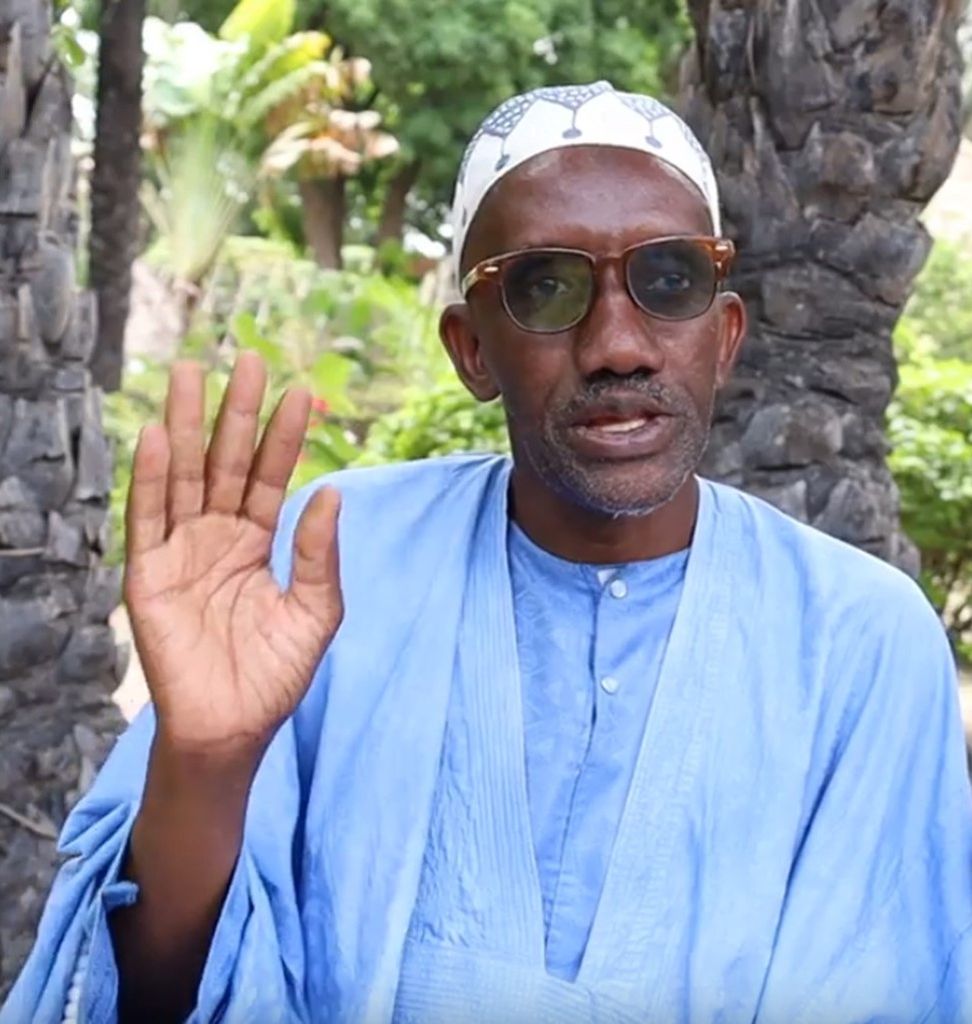
Metadata
| Title | Conversation with Wandifa Dramé |
| Interviewer | Ibrahima Yaffa |
| Subject | Herbal Medicine, Islamic Panacea, Traditional Healing Methods |
| Content | Wandifa Dramé was born in 1965 in Bujee-Saamin in the region of Sedhiou, Senegal. He had his Islamic education in Pakaawu Mankonombaa Saañankundaa, where he learned reading and writing in Mandinka Ajami. Later his father moved to Ziguinchor, where he has lived since then. He serves now as a Muslim religious teacher and healer who focuses on local herbal and Islamic medicine. In this interview, Mr. Dramé recounts how he was motivated to study Ajami in order to be able to read and write in his native Mandinka language. He talks about the significance of Ajami as a traditional Mandinka writing system that is passed down by elders to the younger generation. Mr. Dramé shows and discusses the documents written in Ajami on African traditional medicine that he uses in his treatments. These include various plant-based remedies. Mr. Dramé discusses how he uses these remedies in combination with religious elements such as Quranic verses in his treatments, and reflects on some ways to prepare these traditional forms of medicine. He also discusses various herbal recipes for protection against “night people” (witches). |
| Language | Mandinka |
| Script | Mandinka Ajami |
| Pedagogical content/application | Includes relevant linguistic, stylistic and cultural skills as identified in our assessment guidebook/ ACTFL guidelines |
| Location | Ziguinchor, Senegal |
| Access condition and copyright | These materials are subject to copyright and are distributed under the terms of the Creative Commons Attribution-NonCommercial 4.0 License, which permits non-commercial use, distribution, and reproduction in any medium, provided the original author and source are credited. For use, distribution or reproduction beyond these terms, contact Professor Fallou Ngom (fngom@bu.edu). |
| Contributors | Fallou Ngom, Daivi Rodima-Taylor, Bala Saho, Ibrahima Ngom, Mamadou Aw Ndiaye, Ousmane Cisse, Ablaye Diakite, Alison Parker, and Frank Antonelli. |
| Required citation information | Fallou Ngom (PI), Daivi Rodima-Taylor, Bala Saho,Ibrahima Ngom, Mamadou Aw Ndiaye, Ousmane Cisse, Ablaye Diakite, and other contributors. 2022. “Conversation with Wandifa Dramé.” https://sites.bu.edu/ria/mandinka/mandinka-unit-3/ |
Videos
Mandinka with English Subtitles
Mandinka with Latin Script Subtitles
Community Images
(click on the image for a larger view)
Pedagogical Activities
Glossary
- Boori, booroo: Medicine, remedy
- Dubeŋo koto: In the shade
- Duŋ: To enter, when used for people (to dress)
- Duŋo: Parasitic plant
- Harijee: Luck, fortune
- Jaararilaŋo: Treatment
- Jaata: Dried, hard
- Jaatakendeyaa: Good health
- Jamba-wo-jamba, jamboo-jamba: Each page, each leaf, every page
- Jamba, jamboo: Leaf
- Juu, juwoo: Trunk. When referring to people, private parts, buttocks
- Ka a jaa: To dry, drought
- Ka a kalamuta: To understand, be aware of, know about something
- Ka a kanandi: To free something, cause something to escape, protect, prevent something
- Ka a kandindi: To warm something, heat up something
- Ka a kati: To cut, break, to harvest something
- Ka a kuruntu: To drag something, crawl
- Ka a maa: To touch something, also to copulate
- Ka a ñiniŋ: To look for, search
- Ka a sene: To farm, cultivate, plough something
- Ka a seyindi: To return something, cause something to return
- Ka a siŋ: To dig something
- Ka a tanka: To protect something
- Ka a tuu: To pound something
- Ka a wuluu: To give birth, to deliver
- Ka a yuru-yuru: To pour, spray something
- Ka kana: To escape
- Ka seyi: To return, go back
- Kandoo: Heat
- Kawandiroo, kawandoo: Preaching, sermon
- Kele, keloo: Fight, war, quarrel
- Kipampaŋo, kipanpaŋo: Sodom apple (calotropis procera)
- Kitiŋ: Fresh, raw
- Koloŋo: A well
- Koo: Salt
- Kuŋo: Head
- Maasiiboo: Misfortune, calamity, disaster
- Munkoo, munku: Flour, powder
- Seloro: Strength, potency, efficiency
- Senelaa: Farmer
- Suloo: Root, also monkey
- Tendaa: Market, business center, trading post
- Wuloo: Liar, bush, forest, dog
- Yiri-fatoo: Tree bark
- Yiri-juwoo: Tree trunk
- Yiri-suloo: Tree roots
- Yiroo: Plant, tree, big stick (like fence post)
Notes
- Bii kuu teŋ: “They are not things of today.” This phrase is used to emphasize enduring traditions in Mandinka communities.
- Harijee firindaŋo, harijee firiŋ daŋo: “Means of unleashing luck.” This phrase refers to a good luck charm or a decoction made with special plant leaves and Quranic verses. Local religious leaders make these for people who want to be successful in their endeavors.
- Jaararilaa moo fiŋ siloo: Literally: “a healer who follows Black people’s way.” The phrase refers to a traditional African plant-based healer.
- Mandinka karaŋ kuloolu: Mandinka educational letters. This phrase is used to refer to writing with Mandinka Ajami characters. It is used interchangeably with the phrase Mandinka Safeeri-kuloolu (Mandinka alphabet or script).
- Niŋ Ala kiitita a la: “If God wills it.” A Mandinka expression used when seeking something. The phrase reflects the Mandinka belief that nothing can be achieved without God’s approval.
- Sikicoor: The name of a city in the southern Casamance region of Senegal. It is also called Ziguinchor. According to local oral traditions, the original name Sikicoor comes from the Portuguese Creole phrase sinta bu coora (sit down and cry) because the place used to be a Portuguese slave trading post.
- Suuta-moo: “Night people.” This refers to witches, people who possess supernatural powers and use them to harm people. Mandinka people believe that such people can transform themselves into wind or animals and that they operate at night and can cause death or illnesses that modern medicine cannot cure.
Exercises:
Comprehension || Writing || Listening / Speaking and Conversation || Cultural Competence
Comprehension: Video
Comprehension: Image
Writing
Listening / Speaking and Conversation
- Podkastoo niŋ Widewoo: Podkastoo ke ñiŋ widewoo kaccaa-kuma-kaŋoolu kunna, waraŋ i ye widewoo sutuŋoolu ke minulu be widewoo la kaccaa-kuma-kaŋoolu koyindi la.
Cultural Competence
- Teyaataroo safee aniŋ Mandinka safeeri-kuloolu la muŋ be aada kummaayaariŋo yitandi la.
